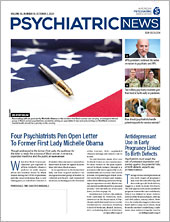“That really drives you insane,
Let’s do the Time Warp again.”
—“The Time Warp,”
(from “Rocky Horror Picture Show”)
During the first weeks of the novel coronavirus pandemic, every day seemed interminable. What I had accomplished in the morning felt by evening as though it had occurred days ago. A whole week seemed grindingly long, and the weekends fleetingly short. More accustomed now to the flow of the days and weeks, there remains a distortion about the duration of our altered lifestyle. Working from home, avoiding the gym, going grocery shopping once every two weeks, and drastically curtailing my social life seems to have been the norm almost forever, yet it’s only been seven months. What’s going on?
A disconnect between objective time, measured by clocks and calendars, and subjective time, measured by our internal perceptions, has been amplified by the pandemic. Changed routines and uncertainty about the future contribute to our distorted experience of the passage of time. The article “How the Pandemic Will Change Our Relationship to Time Forever” describes this phenomenon in more detail and suggests some common-sense ways to help combat the distortion: Set up a regular schedule (social rhythm therapy), change the focus of your thoughts when you find yourself ruminating (cognitive therapy), and introduce some fun (behavior therapy).
In addition to the loss of normal time-flow benchmarks, the trauma of the pandemic further contributes to distorted perception of time. The article “When Time Falls Apart: The Public Health Implications of Distorted Time Perception in the Age of COVID-19” describes the psychological literature on time perception and trauma. Essentially, trauma interrupts the normal flow of time, forcing us to be hyperfocused on the present moment. “Interrupting the flow of time creates perceptual distortions such as feeling like time has stopped or that everything is in slow motion, experiencing a sense of timelessness, confusing the order of time and days, and perceiving a foreshortened future,” wrote the authors. They proposed specific areas of research related to the effects of distorted time perceptions in the pandemic.
Pre-pandemic research about passage of time judgments has demonstrated that positive affect and high arousal are associated with time passing more quickly than normal, whereas negative affect and low arousal are associated with time passing more slowly than normal. “Time flies when you’re having fun” is subjectively true. The article “The Passage of Time During the UK COVID-19 Lockdown” found that more than 80% of participants experienced changes in how quickly they perceived time passing during lockdown compared with pre-lockdown. Subjects who were older or less satisfied with their current levels of social interaction were more likely to experience slower passage of time over the course of a day or week. Higher stress and a lower task load were also associated with slower passage of time over the course of a day. The paper includes an excellent review of the psychology of time experience.
We need additional research about the pandemic time warp. Simon Grondin, a professor of psychology at Université Laval in Québec City and author of
The Perception of Time, is conducting a study of how physical distancing may distort time perception. If you are interested in participating in the study, visit
here.
What we know so far from psychological research is that disruption of routines, uncertainty about the future, trauma, stress, task load, age, and perhaps physical distancing all contribute to our pandemic time warp experiences. Although less scientific, the article “Here’s How Time Works Now” introduces an important additional perspective to the discussion about our collective experience of distorted time during the pandemic. Here is one quote from the article: “A minute used to be sixty seconds long. We thought this could be spiced up. A minute can now either be one hour, or it can take 3.5 seconds. We hope you enjoy this new feature.”
Optimistically, I propose that this and other lighthearted ways of viewing the pandemic will reduce stress, ease trauma, increase a feeling of social affiliation, and thereby restore more accurate perception of the passage of time. ■
“How the Pandemic Will Change Our Relationship to Time Forever” is posted
here.
“When Time Falls Apart: The Public Health Implications of Distorted Time Perception in the Age of COVID-19” is posted
here.
“The Passage of Time During the UK COVID-19 Lockdown” is posted
here.
“Here’s How Time Works Now” is posted
here.

